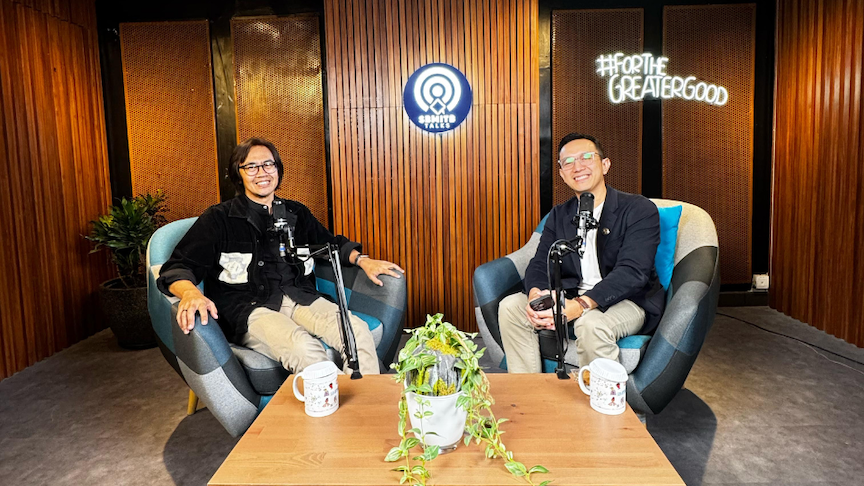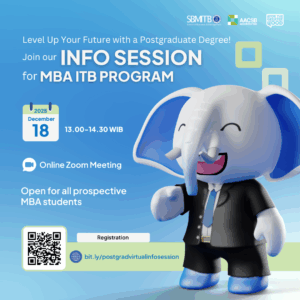As the digital ecosystem evolves and social media platforms like TikTok, Instagram, and YouTube continue to grow, artificial intelligence (AI) has emerged as a major player in the creative industry. Today, AI is no longer just a tool; it can generate illustrations, compose designs, and even create visual identities in seconds.
However, is this advancement a progress or a looming threat to the human role in creative processes? This question was the focus of discussion in a podcast held at the SBM ITB, Bandung, on Wednesday (4/6). The podcast featured R. Bayuningrat Hardjakaprabon, a lecturer at SBM ITB, from the Entrepreneurship and Technology Management expertise group, as moderator, and Raden Adrian Ariatin, a lecturer in Technology Entrepreneurship at SBM ITB, as the guest speaker.
“I think the emergence of AI has made the creative industry landscape more complex,” said Bayu as he opened the discussion
Responding to Bayu, Adrian acknowledged that AI presents both significant opportunities and challenges, particularly in enhancing efficiency and enabling multitasking. “AI offers advantages in terms of speed, efficiency, and multitasking,” he said.
However, Adrian also warned of potential misuse. “It can have negative consequences when exploited by irresponsible individuals, such as manipulating photos or videos, like in recent cases,” he added.
As AI drives efficiency, there is a risk that some human skills may be replaced, particularly as analog methods shift to digital alternatives. So, which skill-based jobs are most at risk?
According to Adrian, no human skill can be entirely replaced by AI. He believes that human creativity and a willingness to learn are sufficient to stay competitive and utilize AI wisely.
“No skill set can be replaced by AI as long as we have original ideas, understand the concept, and know the direction we’re heading. It’s the same with using AI, it functions like a personal assistant. Without our input or concept (prompt), it can’t think for itself,” he explained.
AI cannot operate independently without human ideas and direction. Still, Bayu noted that the increasing use of AI may gradually diminish the human touch in creative work. So, how should we respond to this challenge?
“Humanism must remain present in creative works, especially in relation to their target audiences. A proper design concept is grounded in empathy for its users,” Adrian emphasized.
The discussion concluded that AI should not be seen as a threat, but as a tool that must be guided by ethical considerations and clear regulations. Adrian closed the podcast with an inspiring message:
“AI is not the end of creativity, it is a redefinition of a work to be more advanced,” he said.






